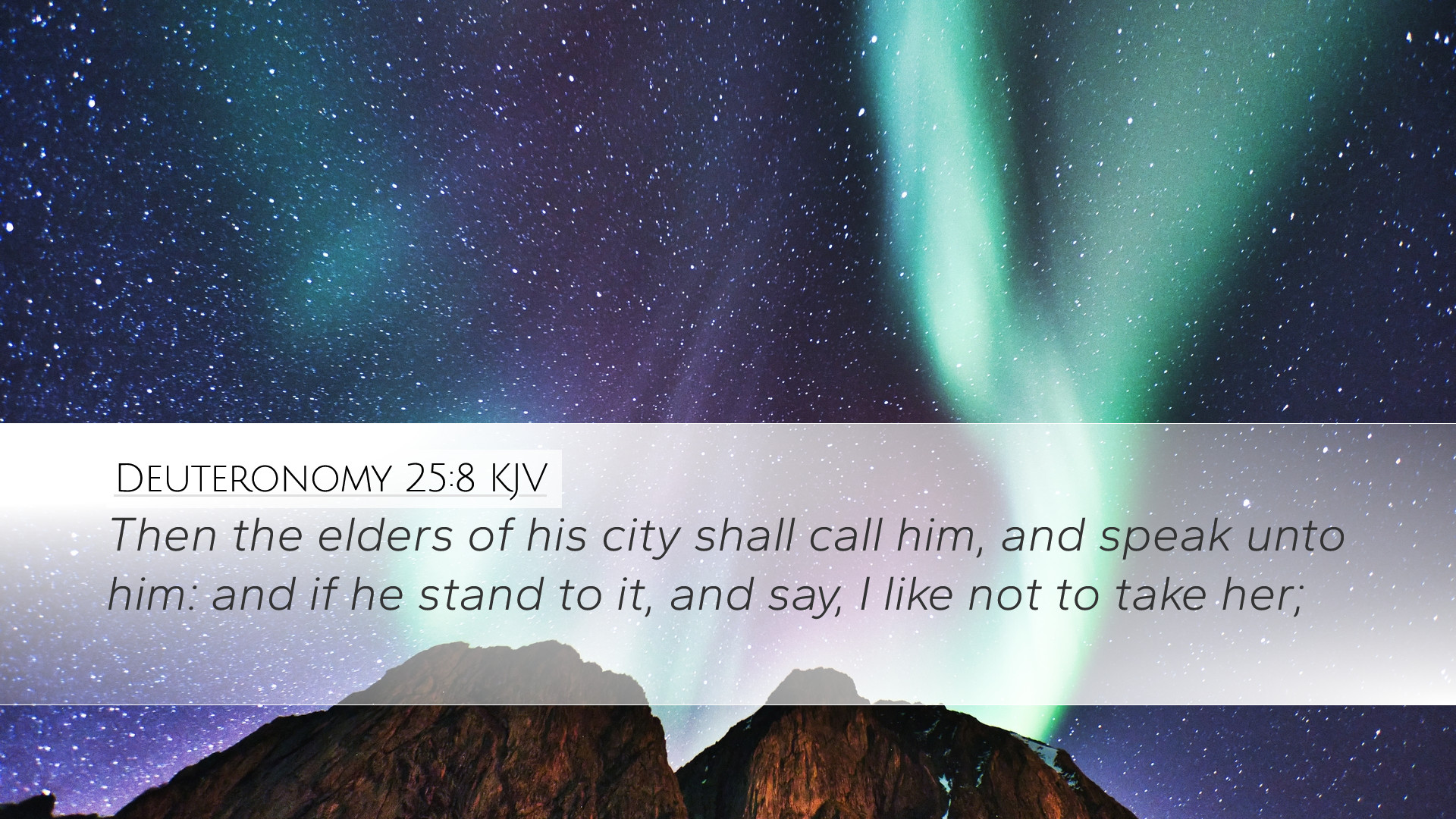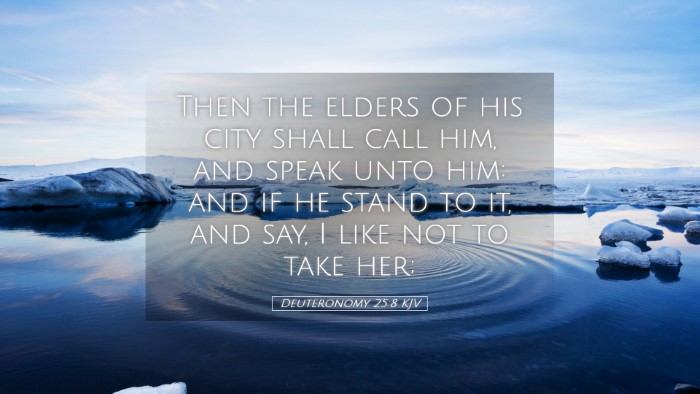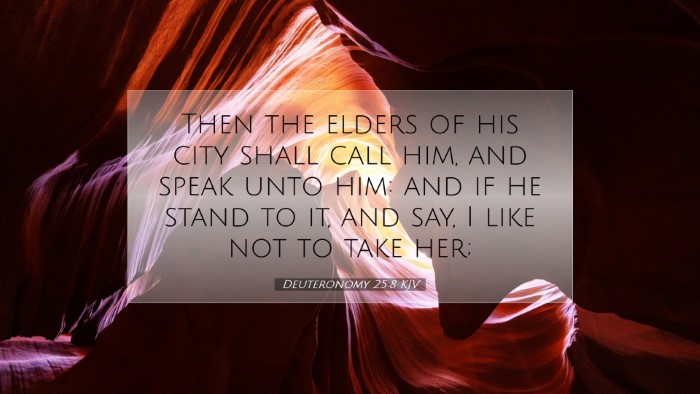Commentary on Deuteronomy 25:8
Verse: "Then the elders of his city shall call him and speak to him; and if he stands firm and says, ‘I will not take her,’" (Deuteronomy 25:8, NKJV)
Introduction
This passage from Deuteronomy addresses the practice of Levirate marriage, a cultural institution aimed at preserving family lineage and protecting widows. In this commentary, we explore the theological implications, social context, and moral instruction derived from Deuteronomy 25:8.
Cultural Background
The institution of Levirate marriage can be examined through the lens of ancient Near Eastern customs. According to Matthew Henry, the practice served to maintain family lines and protect the social and economic status of women who found themselves widowed. The verse sets the stage for a process that emphasizes community involvement in what could be a very personal decision.
Albert Barnes adds that the elders play a crucial role in mediating familial and societal obligations, thereby creating a balance between individual choice and communal responsibility.
The Theological Implications
Deuteronomy 25:8 illustrates the serious nature of social contracts and obligations in Israelite society. As Adam Clarke notes, the refusal of the leveret to marry his brother's widow signifies a rejection not only of familial duty but also of divine ordinance regarding the continuation of one’s lineage. This ties into the larger biblical theme of covenant fidelity.
Moreover, it poses questions of autonomy and divine purpose within the framework of community life. The theological underpinning indicates that while personal choice is respected, it exists within a divinely ordained social structure.
The Role of Elders
The involvement of the elders emphasizes the concept of communal wisdom. According to Matthew Henry, their role is pivotal as they guide the individual in accordance with God’s laws. This portrays a picture where community leaders are accountable for encouraging righteousness and adherence to God’s statutes.
Albert Barnes further clarifies that the presence of elders serves to protect the rights of the widow, ensuring that her needs and position in society are respected. The consultation underscores a system of care that prioritizes the vulnerable.
Moral Instruction
This passage offers profound moral instruction for contemporary readers. It reflects the importance of accountability, both to God and to community. The elders’ role becomes a model for church leaders today, who must encourage obedience to Scripture while also caring for their congregations.
- Accountability: Believers are called to counsel one another in accordance with Scripture.
- Community Involvement: The process exemplifies the importance of community in advocating for the rights of the marginalized.
- Respect for Individual Choice: While community is vital, personal decisions must be respected within the framework of God’s laws.
Conclusion
Deuteronomy 25:8 is a rich text that combines cultural practices, social implications, and divine commandments. The insights from Matthew Henry, Albert Barnes, and Adam Clarke collectively enhance our understanding of this verse as not merely a legal stipulation, but as a reflection of God's concern for justice, community, and individual responsibility.
As modern readers, especially those in pastoral and academic contexts, it is vital to grasp the depth of these principles and apply them within our churches and communities. The message urges us to honor obligations while fostering an environment of compassionate support for one another.


